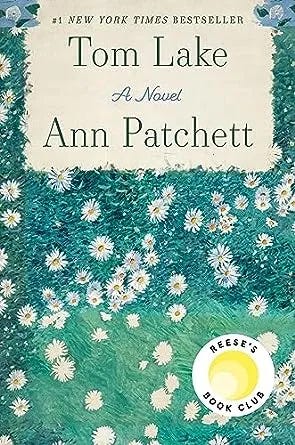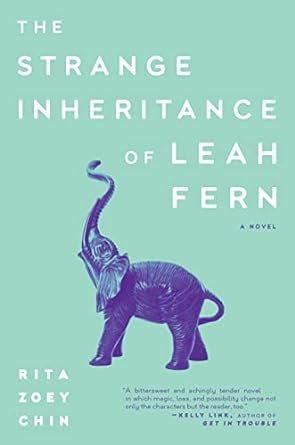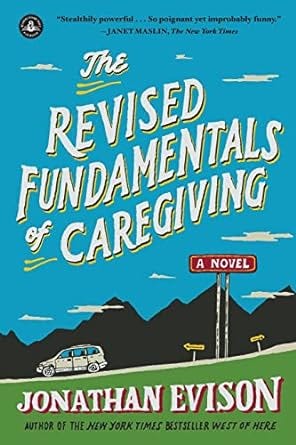This week I finished Ann Patchett’s latest, Tom Lake, a novel set on a cherry farm in Michigan during the height of the pandemic in which a mother and her three grown daughters while away the tedious hours spent picking by listening to the mother tell the story of the summer she spent playing Emily in a performance of Our Town where she shared a torrid affair with a man who would go on to become an iconic actor.
If the book sounds like it’s on the quiet side, that’s because it is—long live the quiet novel!—but the soup of love and longing and lives-not-lived Tom Lake stirred up in me hardly felt quiet.
Consider this stunning passage from page 116:
There is no explaining this simple truth about life: you will forget much of it. The painful things you were certain you’d never be able to let go? Now you’re not entirely sure when they happened, while the thrilling parts, the heart-stopping joys, splintered and scattered and became something else. Memories are then replaced by different joys and larger sorrows, and unbelievably, those things get knocked aside as well, until one morning you’re picking cherries with your three grown daughters and your husband goes by on the Gator and you are positive that this is all you’ve ever wanted in the world.
from Tom Lake by Ann Patchett
We’re in a cultural moment where the narrative pendulum is swinging decidedly toward the bombastic. Premises grow increasingly high-concept, third act twists are too often so outsized they feel like parodies of themselves, and the number of stars readers award books seems directly proportional to how quickly the plot demanded they tear through its pages.
There are any number of theories about why this might be. Maybe we’re so saturated in narrative we’re trying to one-up what came before. Maybe big Hollywood endings have created the expectation that all stories have to go big or go home. Maybe in a capitalist society where we’re told more is more is more, literature feels like it has to rev its engines to compete.
But not all books need to rev their engines.
Sometimes its enough for a book to make quietly poetic observations that make you feel just a little less alone.
Because as much as I love a good page turner, I adore a quiet book.
The kind of book that sneaks up on your heart.
The kind of book that invites you to exhale instead of raising your blood pressure.
The kind of book that inspires you not to race through pages but to savor them.
Maybe it’s because we are deep into spooky season in my house (read: watching horror movie after horror movie after horror movie), but I’ve been gravitating toward quieter books of late. The way I see it, novels are the artform that celebrate interiorities in a way that no other artforms can truly manage. Songs with beautiful lyrics come close, sure, but melody offers songwriters a shortcut that novelists can’t take. Novelists have to build intimate interiority with words alone. And while page turners can pause the action long enough to rest for a moment of poetic introspection here and there, quiet books just seem to enjoy more of these moments.
Tom Lake certainly did.
I won’t list off all the other quiet gems in Tom Lake because there’s no guarantee my gems will be your gems. I’ve found quiet beautiful moments in quiet beautiful books often pass with nothing more than a pause to reread the line that moved you.
But I will close with two gems from two other quiet books I’ve finished recently:
“Sometimes, when a person saves up a lifetime of crying, it seems as if it will drown her when it comes. It seems as if it will never stop. So unfamiliar was the feeling to Leah that, at first, she thought maybe she was dying. In moments she thought her chest might explode or that she might cough up an octopus or that her eyeballs might fall out and wash away into the ocean. But she let the deluge carry her out anyway, and she wept for all the years she hadn’t cried a single tear.”
From The Strange Inheritance of Leah Fern by Rita Zoey Chin
“Listen to me: everything you think you know, every relationship you’ve ever taken for granted, every plan or possibility you’ve ever hatched, every conceit or endeavor you’ve ever concocted, can be stripped from you in an instant. Sooner or later, it will happen. So prepare yourself. Be ready not to be ready. Be ready to be brought to your knees and beaten to dust. Because no stable foundation, no act of will, no force of cautious habit will save you from this fact: nothing is indestructible.”
From The Revised Fundamentals of Caregiving by Jonathan Evison
What about you? What are your favorite quiet novels?
THE WEEKLY R.A.P #3 — October 1, 2023
A reminder we’re switching things up a bit this fall! Instead of sending a separate email each week for the weekly rap, I’m including a link to the RAP in chat for that week. Clicking the link below should take you straight to the current week’s chat! The chat is only for subscribers, but subscriptions are free!







This post was so pertinent. I'm hungry for quiet, well-written books and will definitely read these.